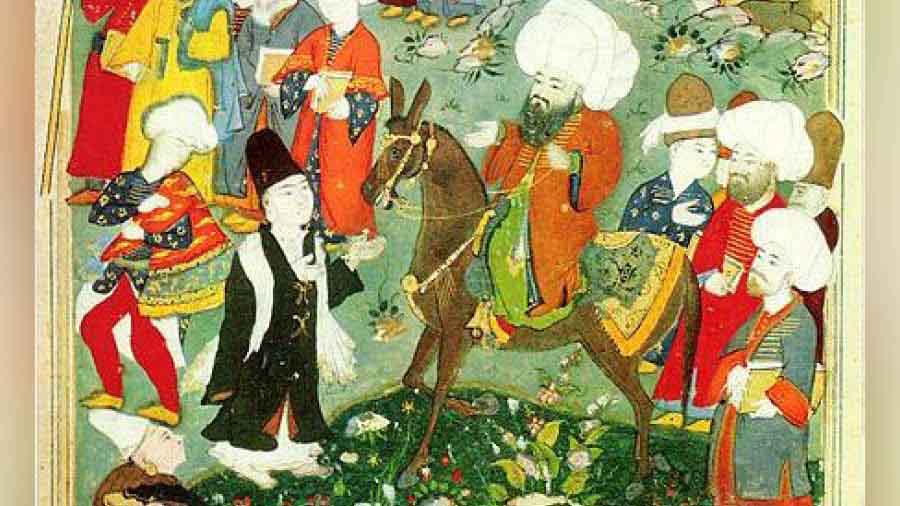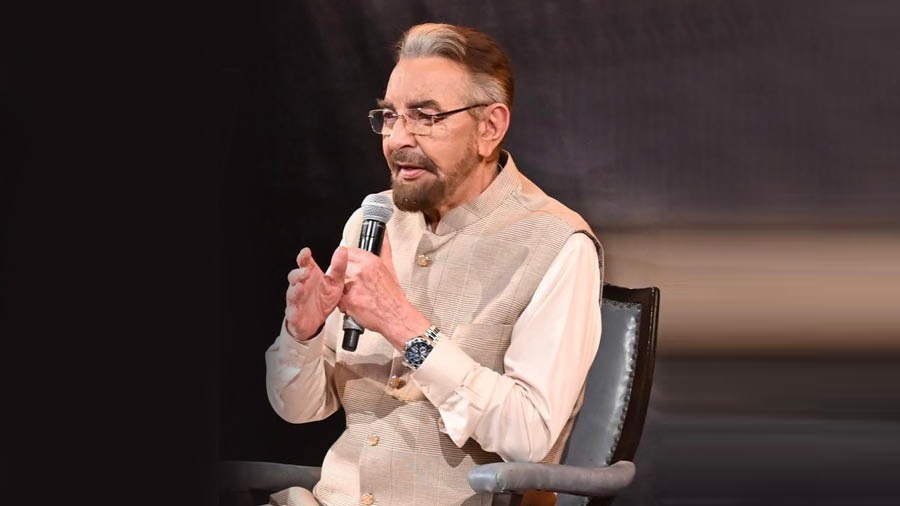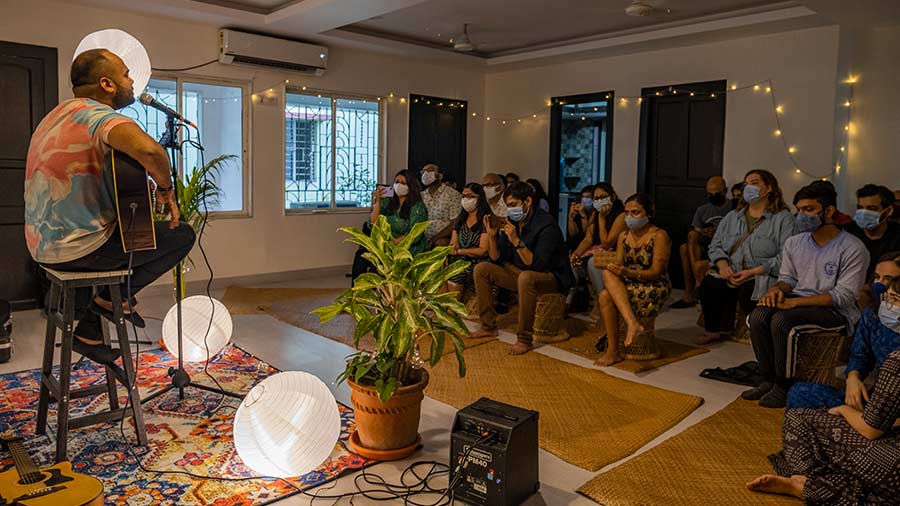“For Rumi, god is love and love is the water of life,” said veteran actor Kabir Bedi, captivating the audience at GD Birla Sabhagar in Ballygunge on July 8, with his mesmerising recitation of the timeless poetry of the 13th-century Persian poet, scholar and mystic.
In an age marked by rising technology, lovelessness and lack of faith, Bedi’s Ode to Rumi, whose concept and design was curated by Jai and Taru Talwar, aimed to recover the light of life from the dark side of human existence. The evening sought to bring out the true essence of mysticism through a tribute to Rumi, read along to enchanting music on stage. Across an hour-long session, Bedi's sonorous voice enlivened the profound verses of Rumi, evoking a myriad of emotions and inviting rumination on love, spirituality and self-discovery.

Rumi is the star among the Islam mystics. He has been a Sufi mystic rockstar since the 13th century
Kabir Bedi
‘This ode is as much a voyage of discovery for you as it is for me’
“Rumi is the star among the Islam mystics. He has been a Sufi mystic rockstar since the 13th century,” said Bedi enthusiastically. He added: “Rumi wasn’t just a wandering minstrel who held up a light in the dark. He was a profound scholar, a man revered in his country and across the world.” Bedi’s ode sparked a reawakening of interest among Kolkatans that sought to keep the spirit of the mystic alive.
While this was his first performance in Kolkata, Bedi has been reciting Rumi’s poems at the National Centre for Performing Arts (NCPA) in Mumbai annually. He said that “this ode is as much a voyage of discovery for you as it is for me. I hope to do more recitals in the future chronicling the experiences of other mystics like Sri Aurobindo, synchronised with music and enigma.”
Among the audience, packed with Rumi lovers, was Ritu Kejriwal, who shared her thoughts about the performance: “Just like a diamond has several facets, Rumi’s poetry is also multidimensional. Once you add Bedi’s voice to it, you are transported to a completely different universe. Throughout centuries, his words have continued to impact people and they resonate with modern audiences, too.”
‘The relationship between Rumi and Shams was one of the most intense ones possible between two men’
The poems were divided into three sections — The Seeker, Finding Love and Union with the Divine. Bedi began his performance with a contemplation on the eternally seeking nature of human beings for which Rumi sought to find solutions. The opening poem of the evening was titled Adoration, which is about discovering the divine. In Bedi’s words, the poem sheds light on how this discovery “requires one to move out of their comfort zone”.
Bedi proceeded to focus on the relationship between Rumi and Shams Tabrizi, a great mystic who is often credited as the spiritual instructor of Rumi, which brought about changes in the former’s life. “The relationship between Rumi and Shams was one of the most intense ones possible between two men,” observed Bedi. Rumi wrote no less than 70,000 poems after the death of Shams, expressing his relationship with the latter. In this context, the lines from one of Rumi’s poems, “All of my friends departed like dreams/ I called upon one friend to become my entire dream” bring out the immortal beauty of their relationship.
In Sufi poetry, love, god and the beloved frequently become interchangeable terms, representing the deep spiritual connection and unity between the seeker and the divine, where love serves as the transformative force that unites all aspects of existence. Rumi’s poem I was Dead expresses how he was brought to life by love, how his “temporal life” had “changed to eternal” as though the personification of “love” in the poem had provided the poet with clarity and reason instead of a muddled fantasy. Transcending the boundaries of life and death, Bedi invited the audience to live through the words by Rumi, hand-holding them through a metaphysical journey.
The message of Rumi is an enduring one of love, a universal currency that transcends boundaries

The love that Rumi professes in his poetry prioritises kindness, tolerance and care TT Archives
Closeness and separation are an indispensable binary of life. Even in the most robust of relationships, there are times when we need to distance ourselves. “Mystics say that separation has its uses!” exclaimed Bedi. He added: “In life, if you separate yourself from your lover, it’s part of something larger.” Thus, his recital of the lines “If it was always summer, the roots would burn and the gardens would never become green/Winter seems bitter but is also kind” rang a bell among the audience.
Ultimately, Bedi underlined how the message of Rumi is an enduring one of love, a universal currency that transcends boundaries. Love in its mystical form is pure and holds great significance to all mystics, expressed through kindness, tolerance and care, all of which is found in nature, animals and humans.
“I came across Rumi’s poetry through the former Indian cricketer, Mithali Raj, who likes to read his poems in her spare time. Rumi’s poetry is the epitome of pithy profundity,” said Jayesh Karia, an engrossed listener at the show. Anita Karia, for whom Rumi’s words are equally important, said, “His poems are extremely relatable in current times as his message of love, life and self-discovery prove to be extremely meaningful in the broken condition of today’s society.”


